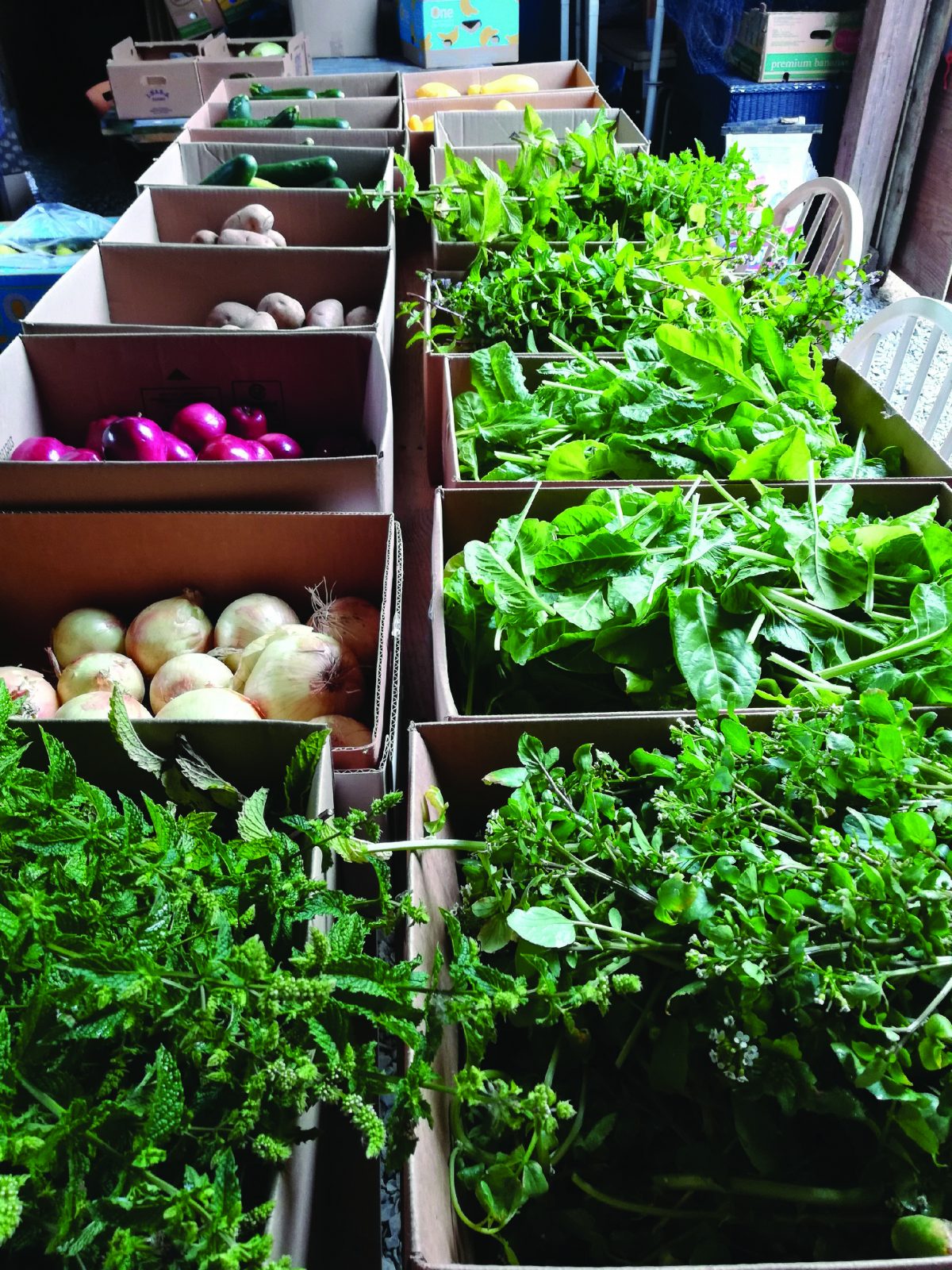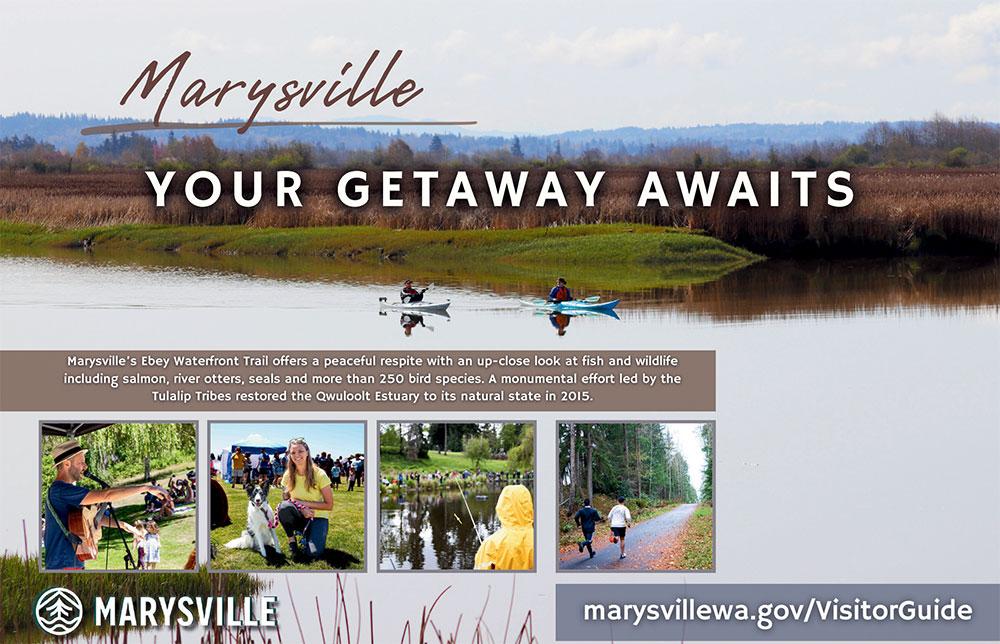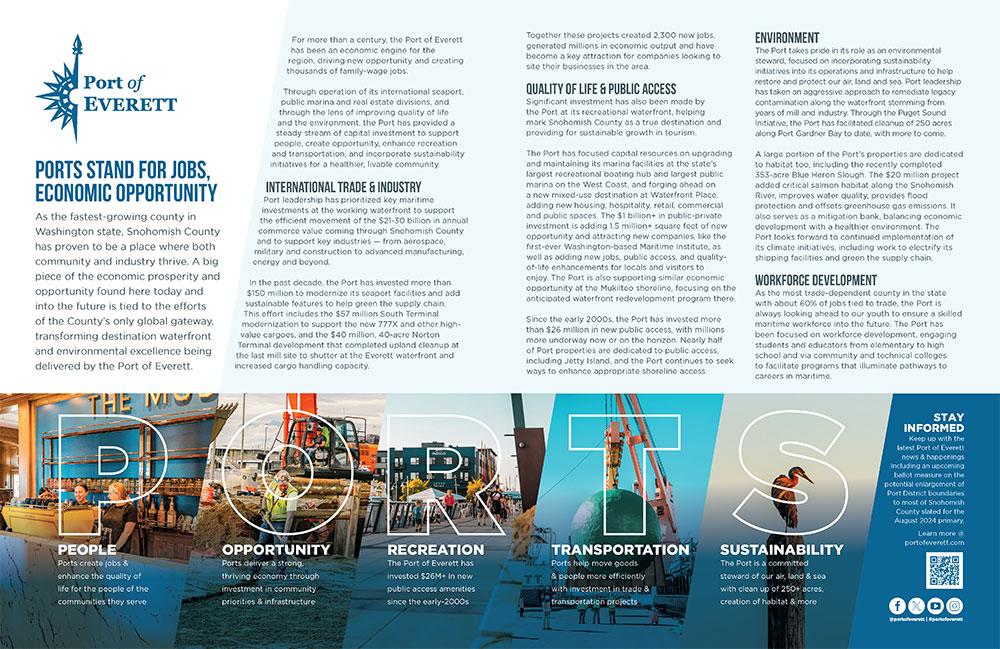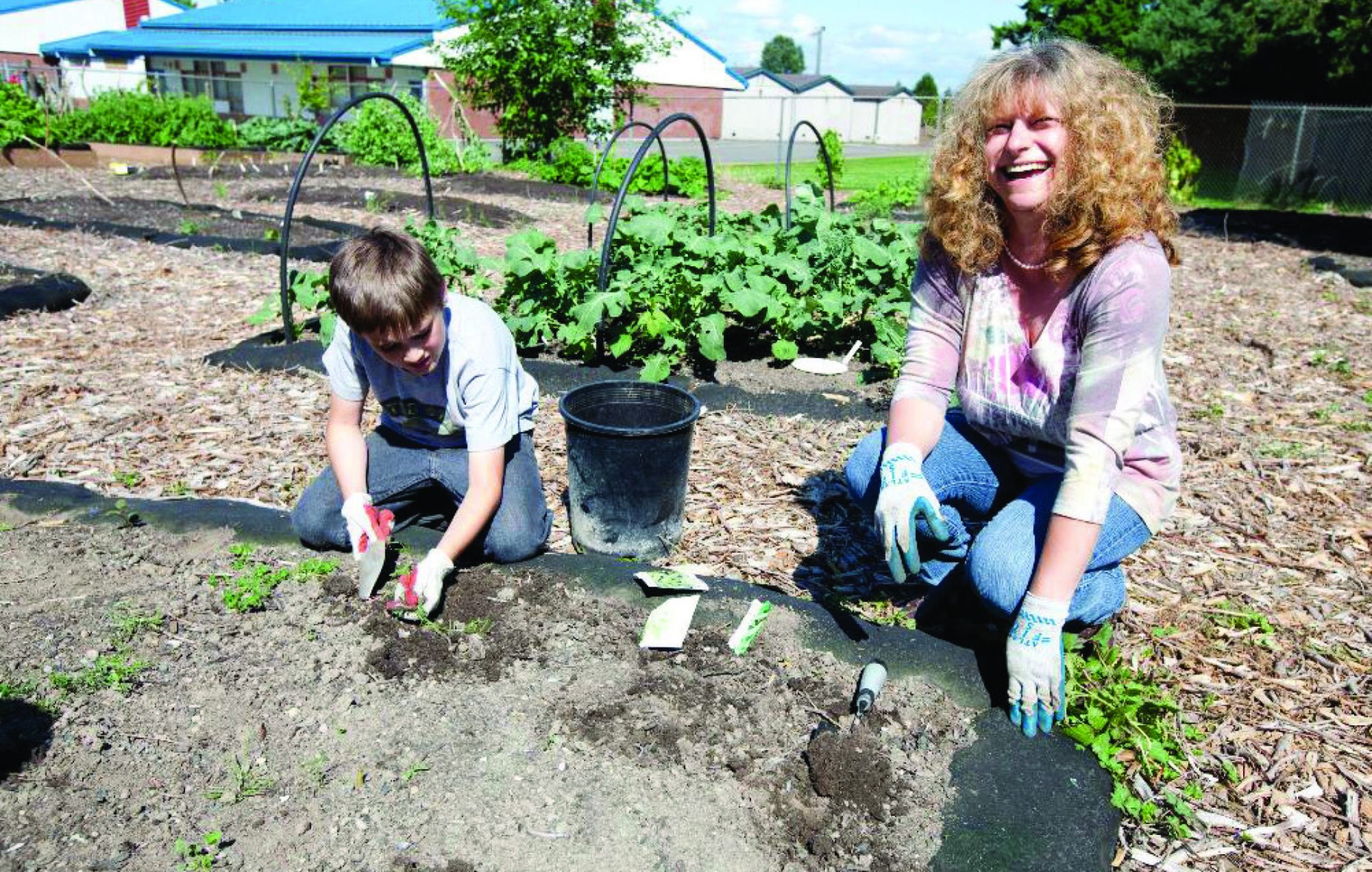
Farmer Frog: ‘We are the Seeds’
BY CAROL BANKS WEBER
In an ideal world, no one would go hungry. We’d always have more than enough to eat, and the food would literally grow on trees. Imagine going for a walk, plucking a Gala apple and a handful of wild strawberries to snack on along your path. Maybe take a basket out back, pick your fill of the day’s harvest, and extra for your elderly neighbor next door.
Such is Zsofia Pasztor’s world, planted one seed — one person — at a time.
Her non-profit Farmer Frog builds sustainable, intensive, edible gardens in schools/communities and urban/small-scale farms throughout Snohomish, King, and Pierce counties, spreading the wealth to those most in need by donating the surplus to food banks, churches, and community centers, and selling at cost at farmers markets and farm stands. In early 2020, outreach expanded significantly to serve an increasing number hit hard by COVID-19.
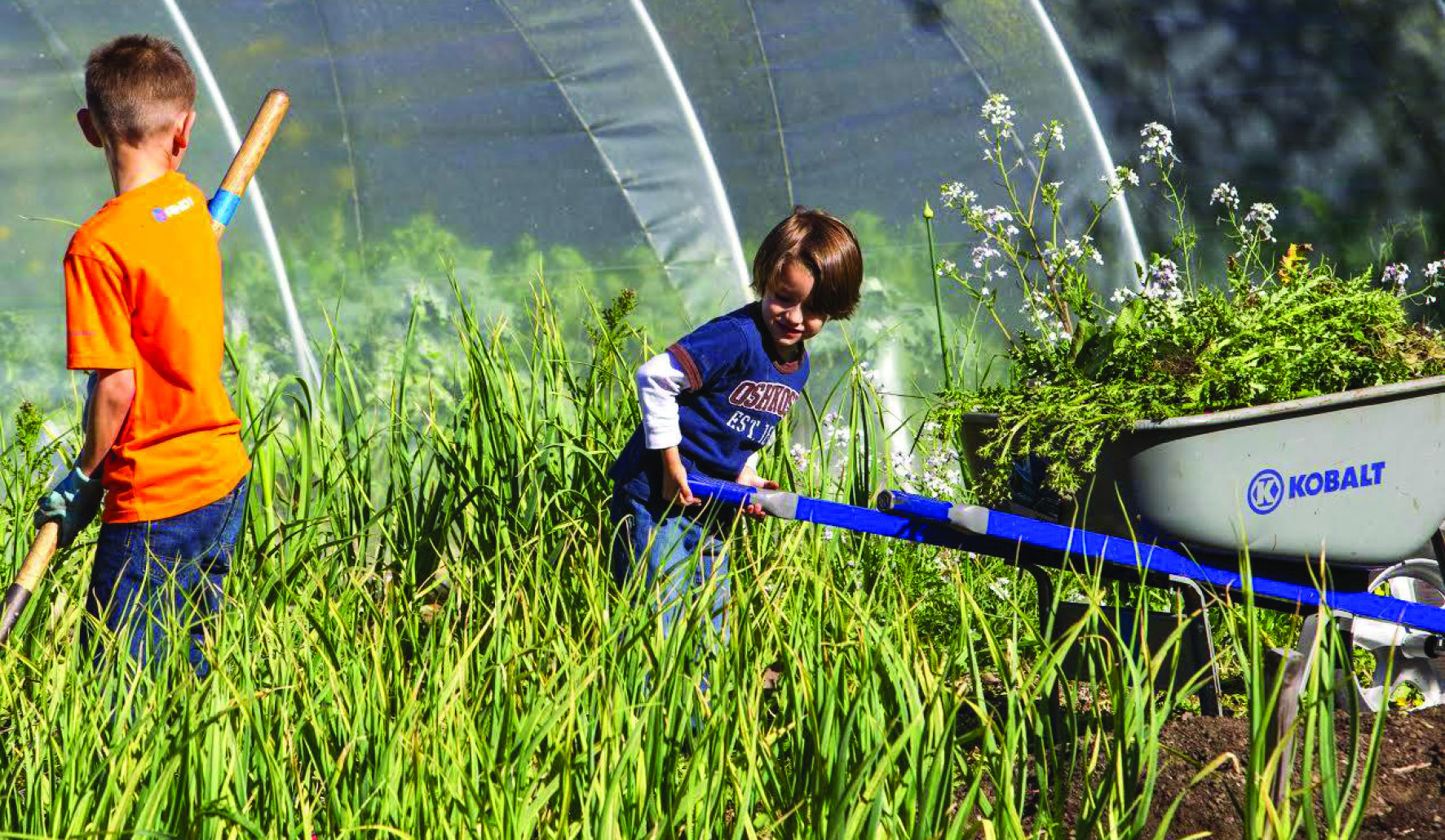
As Farmer Frog’s founder/executive co-director, Pasztor leads by example, rolling up her sleeves, getting in the dirt, and paving paths. She’s a certified arborist, horticulturist, author, and Ted Talk hero, who applies her considerable skills and passionate commitment toward feeding the hungry, then teaching them how it’s done so they can pay it forward.
“We are an educational-focused organization that works with sustainable food production and sustainable site management systems in a holistic way,” Pasztor explains, while at Paradise Farm headquarters in Woodinville. “We reach across cultures, generations, and spaces to help grow children in hope, joy, and love, and to build community that is based on justice and protects habitat for all the critters, because every living thing on this planet has just as much right to be as people.”
Farmer Frog has partnered up with a veritable coalition of food justice warriors to do just that: EastWest Food Rescue, National Tribal Emergency Management Council, International Nutritional Sustainable Partners, Nakani Native Program, Culturas Unidas Food Network, The Silent Task Force, The Bread Booth, Seed to Fork, SEWA USA, Food is Free Project, Neighbors Feeding Neighbors Project, Buy Nothing Project, Veterans Conservation Corps Program, A Hero’s Promise, U.S. Volunteers Joint Services Command, YMCA and Boys & Girls Club branches, local and regional food banks, senior centers and housing communities, school districts, hundreds of churches, and small, community grassroots organizations.
We have so many partners, several dozen, if not over a hundred. Thousands of people came together. We facilitate as a collaborative food distribution to our communities here and in 32 other states. We support a lot of people right now who are in need. That’s our COVID response.
Much of the food distribution takes place on a 15-acre, leased parcel of sacred Coastal Salish land called Paradise Farm in Woodinville. The working farm-in-progress sits in the Paradise Valley Conservation Area, boasting 840 acres of forest — living proof that we can coexist in harmony with wildlife. Not only that, we can thrive. “We are Salmon-Safe Certified here, Wildlife Wise Certified, and we [recently received] our National Wildlife certification,” Pasztor adds.
Until COVID restrictions ease and it’s safer to do so, plans for a children’s healing garden at the Everett Pacific Campus of Providence Hospital are on hold, as are most school garden programs. “It’s bittersweet. We don’t know if we will get back to the school gardens and when. Shout-out to the families who were there at the gardens week after week. None of this work would have been possible without the schools, teachers, students, their families, and the community.”
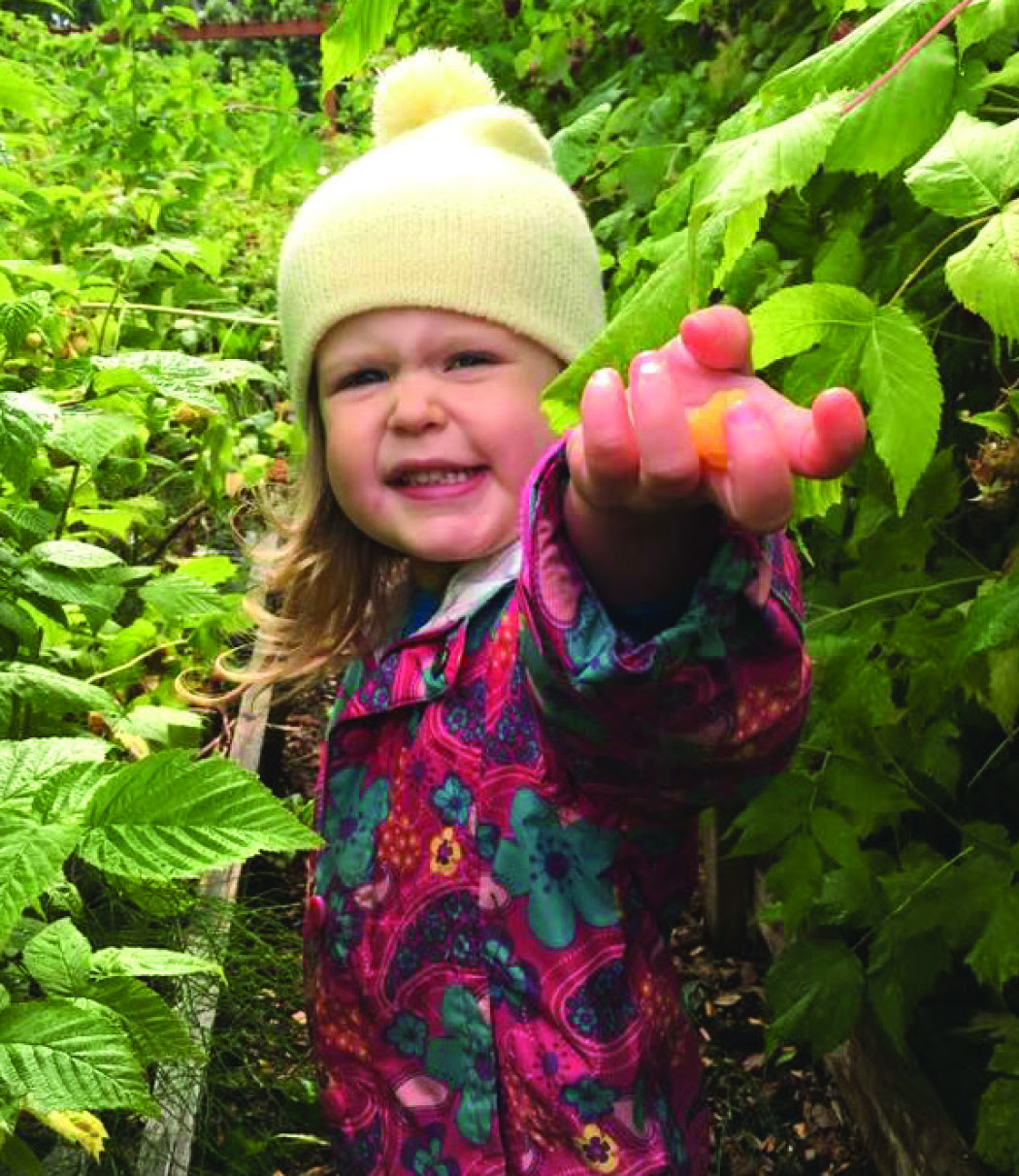
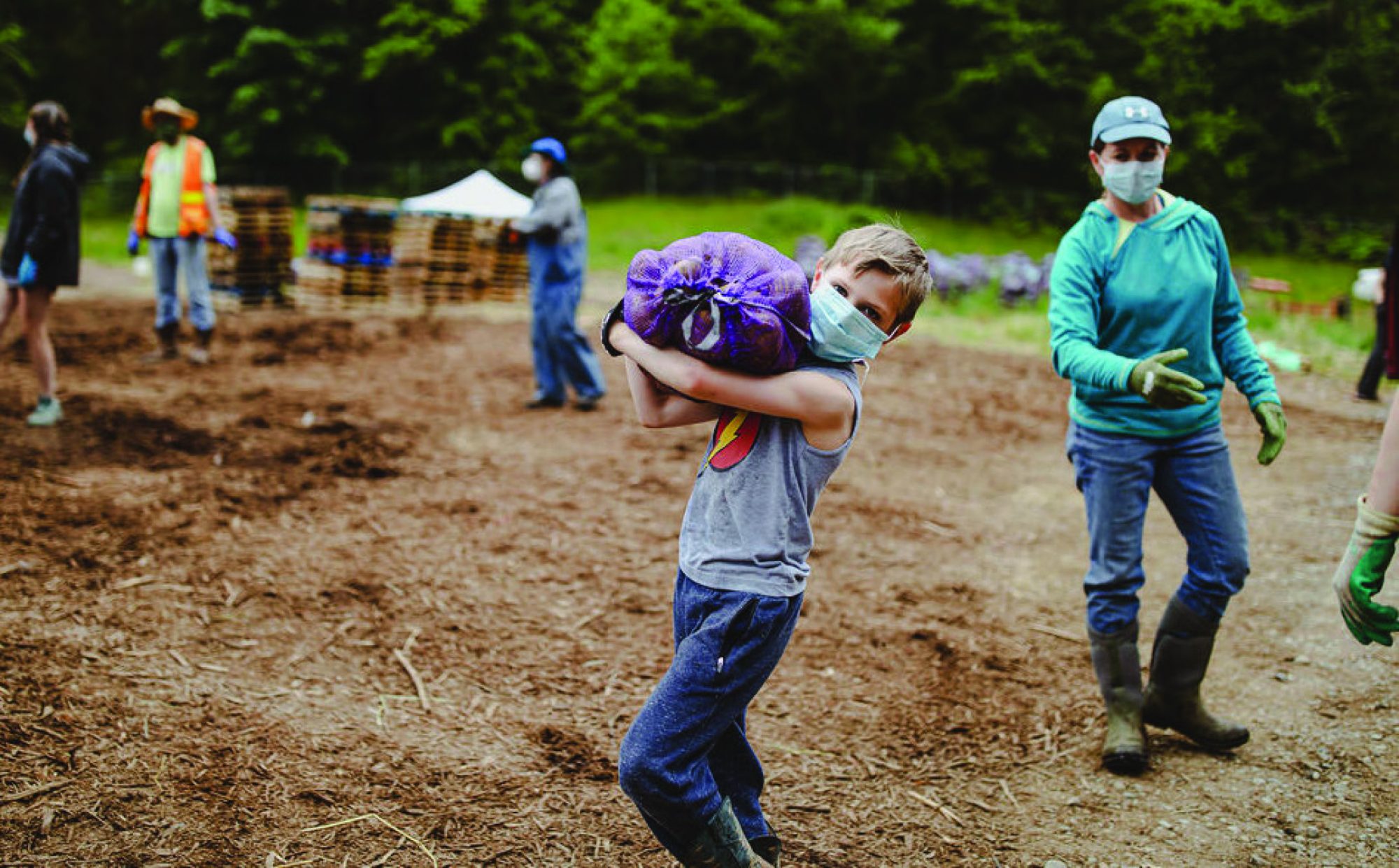
As a Hungarian refugee/U.S. immigrant who knows firsthand about going without, Pasztor grew up learning to live off the land with her family. Foraging in the woods for mushrooms, berries and herbs. Helping mom preserve summer’s harvest for winter. Butchering the animals they raised and sharing resources with neighbors.
Farmer Frog first came to fruition after the 2008 financial crisis. Olivia Park Elementary School teachers in Everett noticed many displaced families camping out of their cars in the parking lot. They reached out to a parent named Zsofia Pasztor, an arborist, to help with an edible garden, so these families could eat.
In January 2010, husband Zsolt and a friend cleared out over 19,000 pounds of blackberry vines at the school. By July, the award-winning landscape designer had a garden on nearly three-fourths of an acre ready to grow for students, their families, and teachers, along with the makings of an innovative STEM +Art curriculum. Soon, word spread about Farmer Frog, a lifeline for so many.
Pasztor dreams of a day where everyone grows their own food, even if it’s a little basil on the windowsill.
“I’d like to see generations coming up have a good, livable home, where they can take a deep breath and not burn their lungs with pollution, where they can fulfill their passions, and not have to scramble all the time for pennies to survive, dealing with predatory pricing on everything, hostage to a system that doesn’t let up. I’d like to see systems that are human-driven, human-focused, but also embracing nature and everything in it without judgement.” ✦
Foundation for Sustainable Community | Farmer Frog
Paradise Farm Headquarters 23210 Paradise Lake Rd., Woodinville | 425-210-5541
grow@farmerfrog.org | farmerfrog.org
